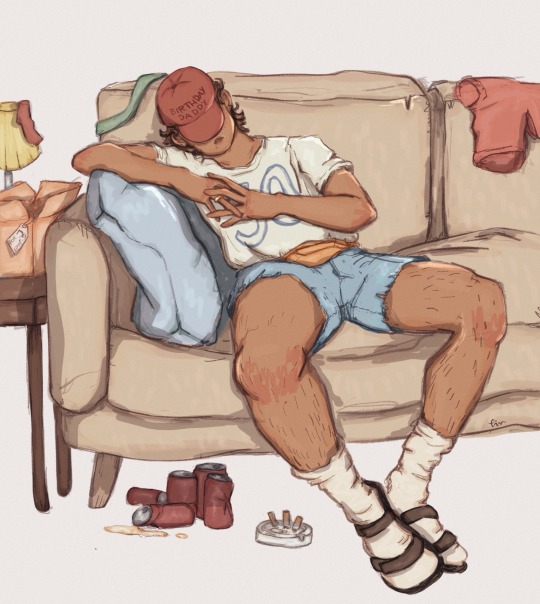Text
pov: you’re harry being born to a bunch of 21 year olds
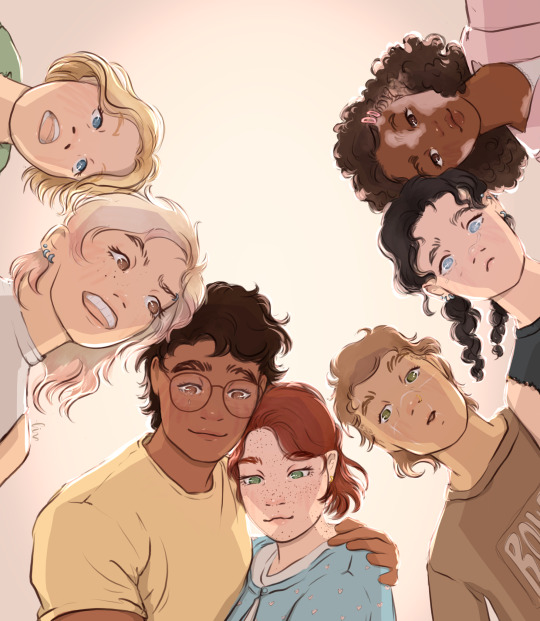
their thoughts and doodles below the cut <3
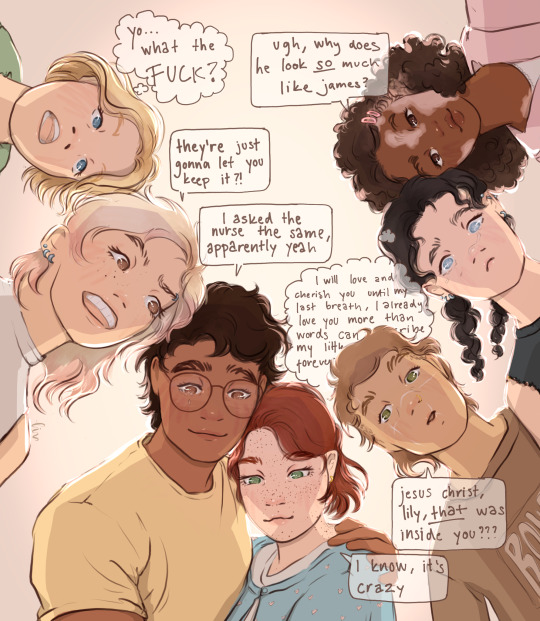
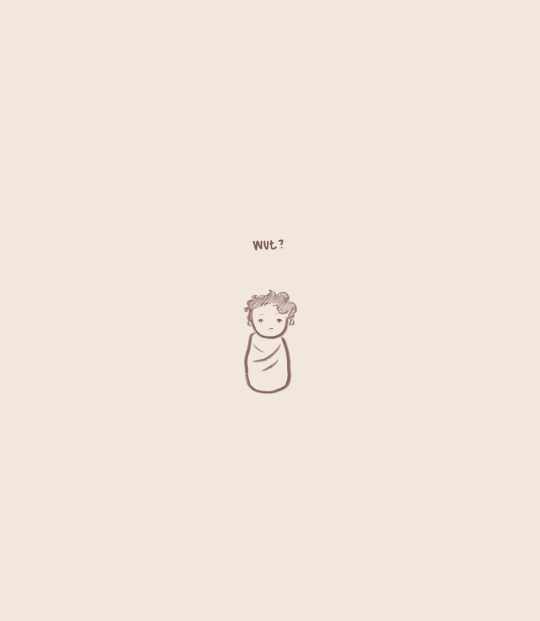
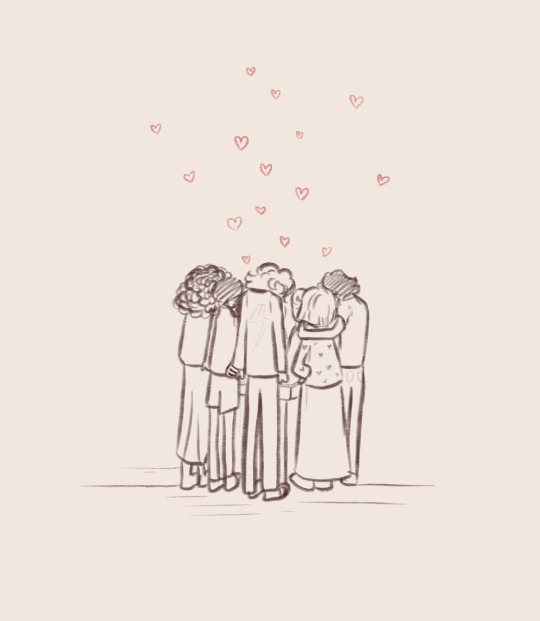
4K notes
·
View notes
Text

Tired Moony.. going back to my roots with this sketchy style, so so fun
1K notes
·
View notes
Text
I’ll forever be confused how we (the marauders fandom) looked at the whole cast of characters and concluded that the sarcastic ones were Remus and Regulus. I can’t recall Remus ever being sarcastic in canon, and the only words we get from Regulus are incredibly earnest and pompous and compared to Percy Weasley in tone.
While the characters who do engage in sarcasm—Sirius, Severus, and ‘cheeky’ Lily—are relegated to “too vapid to understand sarcasm", “pompous prat with no sense of humor” and “incredibly sweet until she’s not”.
358 notes
·
View notes
Note
honestly is there a single competent teacher at Hogwarts? Any teacher I can think of with more than 10 lines of dialogue is a pedagogical disaster. Very shippable disasters though, for which I am grateful because your page has made me giggle all week.
maybe Sprout.
honestly, anon? no.
that school is a basket case and the older i get the more my sympathy for cornelius fudge increases. imagine getting the call where dumbledore says "heyyyyy... so, i hired what i thought was an ex-auror who was retired from the service because of serious ptsd, gave him no teacher training, let him perform illegal curses on children for fun, and then it turns out he was an escaped convict trying to resurrect the dark lord all along. lmao."
i'd have devoted myself to trying to discredit him too.
and so, for fun and profit, i think it's only fair for us to establish an official competency ranking of the teaching staff at hogwarts during the period 1991-1998... points on for having a basic grasp of the material, points off for anyone who nearly dies in your class.
1. wilhelmina grubbly-plank, care of magical creatures
genuinely, professor grubbly-plank is the only person we meet in all seven books who seems to be an uncomplicatedly good teacher. she's got a series of well-defined lesson plans which feature a mixture of guided and independent study and which work in a tangible way towards exams, she has clear authority in the classroom but is never unreasonable or cruel, she's demonstrably able to lead a practical class which involves wild animals which might behave dangerously or unpredictably without there ever being any concerns about student safety, she takes an active pastoral role [such as when she helps heal hedwig's injured wing, reassuring harry enormously], she's collegial [she shares her lessons plans with hagrid in goblet of fire, and she refuses to criticise his teaching to umbridge], and she's admired by all of her pupils except harry [who is nonetheless begrudgingly forced to admit that she's incredibly good at her job].
plus, her aesthetic is iconic.
=2. filius flitwick, charms; pomona sprout, herbology
in joint second place, we have these two.
both sprout and flitwick spend canon seeming to be pretty good at their jobs - they have interesting lesson plans which seem to balance theoretical and practical work well and which prepare their pupils properly for exams, their pupils like them and enjoy their lessons, they're both excellent at the pastoral side of their jobs [sprout's gentle encouragement of neville is really lovely], and they're adored by their colleagues.
they lose marks for lax classroom discipline. harry, ron, and hermione are constantly yapping away in both charms and herbology - with harry and ron frequently failing to understand what they're supposed to be learning because they were too busy have a chat.
=4. remus lupin, defence against the dark arts; septima vector, arithmancy
two teachers here who earn their placement on the list by having one pupil who considers them life-alteringly inspiring.
for lupin, this is dean thomas - whose constant state of readiness to throw hands to defend his honour is one of his greatest character traits. for vector, it's hermione.
obviously, they're both well-qualified, well-prepared, engaging, and [at least in lupin's case, but i can't see why it wouldn't also be the case for vector] well-regarded by their colleagues.
they don't rank higher because lupin loses marks for endangering his students by not disclosing his knowledge that the presumed-to-be-a-death-eater sirius has a means of entering hogwarts without detection [i understand why he does this from a characterisation point of view, but it's inexcusable from a safeguarding one] and because vector teaches an elective subject which is implied to only attract bright, engaged pupils - and therefore has an easier time in the classroom than someone trying to get a student like crabbe through their exams.
5. minerva mcgonagall, transfiguration
in comes minnie mac at number five.
unsurprisingly, her solid curriculum, excellent classroom discipline, high-regard among her colleagues and pupils, support of student extracurricular activities, and investment in helping her pupils pursue the careers they want all give her points.
she loses marks, however, for the fact that she is so casually disdainful of pupils who aren't instinctively good at her subject - which suggests that she doesn't know how to adapt her material so it can be understood by every student she teaches. like dumbledore, she seems to have an identifiable favouritism for brilliant students - who she seems to permit to get away with much more than students she considers average or dull - which probably doesn't endear her to anyone who doesn't get that treatment.
on her pastoral approach, though, i don't think that it matters too much that she's not particularly nurturing - even though she's a head of house. she seems to be good at responding to genuine distress and managing genuine crises with empathy, and the "pull yourself together" vibes she takes in response to more trivial dramas is because she's a presbyterian scotswoman.
6. severus snape, potions & defence against the dark arts
the one on this list that i imagine will be controversial...
because snape is a dick in the classroom - not denying that - but he's also, in terms of his pupils' exam performance, clearly the most successful teacher in the entire school. he can fill his newt-level classes despite only admitting those with outstanding grades, and he expects every pupil he teaches to pass owl-level potions and seems not to be disappointed. hermione reveals that he does teach the theory of potions and the discipline's wider application - harry and ron just don't listen - and that she thinks his lessons are interesting.
snape loses marks - obviously - for his general vibe, although i think he should be allowed some leeway for his dickhead behaviour since potions is clearly a subject in which not paying attention and not being able to follow instructions properly is dangerous [hence why i've been a trevor hater since day one].
i suppose he should also be allowed some leeway because it's a genre requirement for a school story to have a theatrically evil teacher. but he's not getting it - since he clearly enjoys the role so much.
7. horace slughorn, potions
marks on for encouraging independent thinking and for clearly being able to hold a classroom's attention. marks off for not learning the names of pupils he's indifferent to, getting his favourite pupils drunk, and for having no follow-up questions to "hello, sir. i'd like to commit some murders."
8. charity burbage, muggle studies
entirely because i think it's genuinely admirable - and, indeed, far more admirable than the fact that the order of the phoenix all happily keep working for the state following voldemort's takeover - that she publishes an article in the daily prophet, to which her real name is attached, explicitly refuting blood-supremacist rhetoric when she must know that a blood-supremacist government is about to come into power.
marks off because the fact that even wizards who've taken her class appear to know fuck all about muggle society means that she can't be particularly good at her job.
9. firenze, divination
marks on because his pupils love him, marks off because that's a tremendously low bar to clear given... trelawney.
him telling his classes that divination is a bullshit, made-up subject is iconic, though.
10. "alastor moody", defence against the dark arts
i think it's genuinely impressive that he manages to go from being imprisoned under the imperius curse for a decade straight into planning a full year's lesson plans [which his pupils love] and doesn't have a breakdown.
marks off because of literally everything else.
=11. all the miscellaneous teachers: aurora sinistra, astronomy; silvanus kettleburn, care of magical creatures; bathsheba babbling, ancient runes
they seem fine.
14. rolanda hooch, flying
full respect to her for managing to wangle a full-time salary out of an annual workload made up of teaching one lesson [badly] and refereeing six quidditch matches.
15. quirinus quirrell, defence against the dark arts
all the proof those of us who hate professor riddle stories need that voldemort would have been a dogshit teacher, if he can't even get his meat-puppet to inspire a room full of eager eleven-year-olds in a subject which is about the coolest ways possible to kill people.
=16. cuthbert binns, history of magic; sibyll trelawney, divination
they're terrible, obviously, but the fact that they remain in their jobs despite being so clearly incompetent is entirely dumbledore's fault. are you not giving the staff performance reviews, albus? come on now.
18. dolores umbridge, defence against the dark arts
umbridge deserves to be in prison, but she did at least bother to plan out a curriculum.
=19. gilderoy lockhart, defence against the dark arts; rubeus hagrid, care of magical creatures
both victims of dumbledore's "lol this will be so funny" era of hiring practices. both deservedly regarded as completely fucking incompetent by all but one defiant brownnoser. both possessing jazzy taste in textbooks.
21. amycus carrow, defence against the dark arts
he beats his sister simply because his pupils do appear to know how to perform the unforgivable curses correctly.
22. alecto carrow, muggle studies
literally nothing positive can be said.
120 notes
·
View notes
Text
Regulus is a cancer and Barty is a scorpio. FOR ME <3
Regulus Birthday is June 30th. <3
and Barty Birthday is October something, my bestfriend chose the date LMAOO
#one or both of them has to have a pisces placement so they have a grand trine#that's very positive synastry#barty's mars should be conjunct or trine regulus' moon or venus#they should have 2nd or 8th house synastry too#maybe 1st & 5th#bc those are all varying levels of intensity & obsession & lust & possessiveness & protectiveness
40 notes
·
View notes
Text

look the map nobody asked for <3
my latino marauders and which character nationality *i* HC.
#i'm sensing some peru beef#idk why brazilian prewett brothers feels so right#r any of them spanish?#or Portuguese
33 notes
·
View notes
Text
unfortunately for me i don’t agree with the headcanon that lily was insecure and thought james was asking her out as a joke but now people just think that’s what’s up. lily evans knew her WORTH sorry to disappoint
#my hc is that she thought it was a joke but not bc she's insecure#but bc james had no game and acted so stupid it always came off as a joke#text#m#jily
406 notes
·
View notes
Text
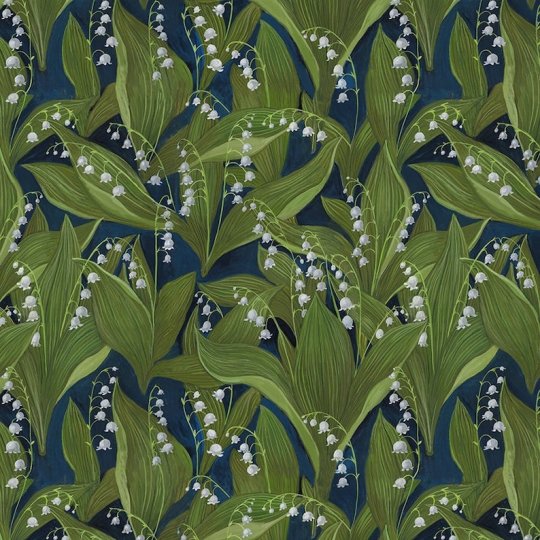
Lily of the Valley Field - Print by swanbones
3K notes
·
View notes
Text
it's a dark and stormy day and I am returning to when I first saw you, the end was soon
#text#m#like a month ago they got their asses handed to them and they've been sitting around waiting for the aftermath
0 notes
Note
Please share the receipts about Harry Potter being a colonial fantasy! Reading stuff like that is so interesting 🙈 have a good day

I’m glad you both asked!
This argument will be divided into threemain parts. The subject of magical creatures in the wizarding world, thesubject of humans other than English wizards, and the subject of Harry’scharacterization in the novels. But before I can discuss the novels andRowling’s (probably mostly unintentional) colonial fantasies, we must look atthe background information of those colonial fantasies. To do that, I willoutline and explain certain elements of the 1800-century cultural and politicalsituation, reflected in the literature of the time. (See! This is why you don’tdismiss history as the unnecessary boring subject Rowling!!!!)
(In this text, I use the word wizard akin tothe universal man, as in mankind. I do this, because Rowling herself does this,referring to unisex groups of witches and wizards as “wizards”.)
Racial thinking in the British empire was heavily influenced by pseudo-scientific theories like phrenology and race classification theory. Humanist sciences like sociology were heavily influenced by “hard sciences” and there was a strong demand to find a scientific justification for the existence of the empire. This justification came with race classification, that was divided into two different equally racist branches of theory. The idea that different human races were actually subspecies inside the human main species, and that these subspecies had evolved to fulfill different functions and behave in different ways. Roughly divided, the Anglo-Saxon subspecies had evolved into a rational thinker and a natural leader, the Asian subspecies into servile and effeminate role, and African subspecies into manual labourer. Now, in order for society to live in perfect harmony, that society has to be built in a way that each human species can follow their natural predilections and follow their species-natural behaviour.
The other branch of scientific sociology argued that all humans had the same potential for civilization, but that all human societies were also in different evolutionary stages. Human societies were seen to evolve in a neat line, from promiscuity-matriarchy-transitional patriarchy-patriarchy. All human societies therefore started from hunter-gatherer tribes and would eventually turn into enlightened British style modern societies. As the British already had reached the top of the societal evolution, it was also their right and burden to protect the societies that had not yet reached this top evolutionary form. It is very important to remember that while the British empire was filled with straight up hateful and vile racists that saw genocide as a fun past-time, there were equally many people who believed the science of the time and condemned the mistreatment of the empire’s subjects believing that the empire was in truth necessary in order to help their less-evolved human compatriots.
Another important note to make about the imperial mindset is how these rational leaders were created; in boarding schools. The future leaders of the empire were all sent to a boarding school, somewhere around the age of 10. These schools, rampant with bullying, pressure and straight up rape, were not places that a young boy was supposed to become a scholar or an athlete; his job was to make connections and learn to become charismatic. Doing too well in your subjects was not desirable, as a book-worm is not what the empire needed. Being good at sports was good, but not if you had to sacrifice time to practice too much. Sports and sciences were there to support the student’s growth into a proper English gentleman, not as an educational goal themselves. Debating, public speaking, and aggressive confidence were much more important skills to master for the future overseer of a colony. Your job as a student in, for example Eton, was to network and grow a stiff upper lip. A terrible educational system for sure, which caused damage to the British psyche that people today are still trying to understand; with Boarding School Syndrome and its consequences important when trying to understand the problems in British politics today
How do these facts then relate to Harry Potter? Well, let’s start working our way through from magical creatures. In the Harry Potter universe, the world is filled with creatures with human-sentience that however do not, at least in Britain, mix with the dominant human population. We know that there are house-elves, working as servants, goblins, working as bankers, centaurs, keeping away in their forest, as do merfolk in their lake. Dwarves were employed as cupids (entertainers) in Hogwarts by Lockhart, and there are veelas that work as exotic dancers in the quidditch world cup.
At first glance, you might think that Harry Potter and Dumbledore are on the side of the creatures. Dumbledore is noted for being a great advocate for non-humans when defending their right to exist, as opposed to the more genocide-minded goons at the ministry. Voldemort is happy to employ creatures that he deems “dark” and ignore the rest. At first glance it would even look like the narrative is advocating for tolerance, and it is, but it is not advocating for equalitybetween humans and non-humans.
The centaurs and the giants have lost their native lands to humans, and have been forced to live in reservations, as most notably pointed out by Dolores Umbridge in Order of the Phoenix. “Ministry of magic permits you certain areas of land.” (p.665) At the same time, the books do not take the time to portray either the giants or the centaurs in particularly sympathetic light from the point of view of our characters and this point of view is never questioned. Centaurs are shown to be violent and even unreasonable towards any humans who would want to have contact with them. Giants are shown to be stupid and hostile, killing themselves into extinction. (Order of the Phoenix p.377) Meanwhile, the races that do mingle amongst wizards all have something to offer to humans who allow them in their society. Goblins are useful to have around because of their hold over the banking industry and their superior metal-working. House-elves are useful as domestic servants. The creatures that wizards label as “dark” are all creatures that do not have any filled role that they can perform for the benefit of humans, (vampires, hags, werewolves), segregated from the wizarding society proper, and are therefore shunned as undesirables. Veelas on the other hand are blatantly fetishized, and they are only shown in two roles in the books. Either as entertainers or as married to wizards. The narrative does not even hint that a veela might have any non-sexual role in the society. It would seem, that all the magical races have either been pushed out of the wizarding community, or they fill some niche purpose in society that the wizards find useful, and that the wizards themselves do not want to perform.This structure of society, built upon the assumption that there will always be creatures fulfilling certain roles for the society, is not questioned by any of our heroes.
Dumbledore is happy to advocate for tolerance, but not inclusion. He is happy to create a dialogue between humans and centaurs- as long as it is not humans who have to make any concessions in their relationship. Same goes for merfolk. Dumbledore advocates for their right to exists in their own segregated patches of land, and in return they will help Dumbledore. Merfolk will allow themselves and their home to be used as obstacles in the tri-wizarding tournament and the centaurs will let wizards traipse through their forest.
Inside the centaur society, we are supposed to see territorial Bane as the “bad guy” and the meek Firenze, who argues that centaurs should take sides in a human war and make defer even more to the wizards. Firenze eventually accumulates into the human society by becoming a teacher in Hogwarts, but only after he has been banished from the Centaur society. Therefore Firenze becomes completely subserviant to Dumbledore, as his own people do not accept him anymore and Hogwarts is the only place he can go. He does not have the backing of his own community that could allow him to make demands towards his human peers, which makes him a good ally for Dumbledore. Firenze placed the needs of humanity above the needs of his own species and that makes him the ‘reasonable’ centaur.
The same happens with goblins. Their prioritization of their own people is at every turn equated with them being unpleasant, unreasonable, and impossible to work with, and when Harry Potter shows the bare minimum of respect- acknowledging that goblins have their own legal system that defines ownership of an object differently than a human would, it is framed as the greatest height of progressiveness that anyone could ever show towards a goblin, instead of the bare minimum. Never-mind the fact that the books explicitly mention that goblins are denied the use of a wand by the dominant human government, and actively have to fight for the rights they have even now, which is neither an interest nor a concern to any of our heroes.
Note of interest is also that most non-humans taking action against the status quo are antagonists. There are no creatures in the order of the phoenix fighting against the dark lord, (Remus Lupin identifies as a human with an unfortunate condition.) but there are several under the command of Voldemort. (Order of the Phoenix p.88) The most positive attitude towards non-humans comes from the heroes who show tolerance towards non-humans, but who also do not try to reach any deeper understanding about non-human experiences in the wizarding society.
The house-elves are the most blatant piece of yikes when it comes to the issue of creatures. The enslavement of house elves is explained away as a natural order of the world. At the end the series, even the protagonist Harry Potter accepts this natural order and becomes himself a master of the house elf Kreacher (Half Blood Prince p.55). Harry’s slave-master position is accepted,because we trust Harry to treat his slaves decently, there is never anyquestion what the condition of being a slave-master can psychologically do tothe master, or that slavery as an institution is too immoral to accept, nomatter the conditions. The reader is shown that the elves are not capable oftaking care of themselves without a master by examples of Dobby and Winky, the only freed elves shown in the books. Winky, after being freed, becomes an alcoholic. (Goblet of Fire, p.564) Dobby, while enjoying freedom, would be unable to support himself without the help of benevolent Dumbledore, to whom Dobby works in the same way as the other slaves in the castle, even if he is namely free. (Goblet of Fire p.400) (Both alcoholism and “frivolity” were anti-abolitionist talking points in the southern states in the antebellum era). Theimplication is that some races are simply born subservient, and the morally decent thing to do is to keep them in slavery but treat them kindly.
Hermione Granger, who in the books argues that slavery as an institution is by itself something that cannot be accepted, is presented with her views as ridiculous and misguided. On the other hand, those who argue for the institution of slavery appear as rational and reasonable. There is no way for anyone to think of her S.P.E.W badges as anything but childish and stupid, a phase for Hermione to grow out of. In Chamber of Secrets, the readers do see Harry freeing the house elf Dobby, after Dobby has personally helped Harry. However, the implication is that Dobby suffered from an unfit master, not from the slavery itself, and that his freedom came as boon after he had done a personal favour to Harry Potter. In the world of Harry Potter, slaves are happy to be slaves, as long as their masters are decent masters.
But if you stop and think of all this, it should not be rationally possible for a society like this to exist. If the giants truly are so stupid and violent that they are accidentally killing themselves to extinction, they should also not be sentient enough for humans to breed (and even create emotional bonds, as Hagrid’s family) with them. If these creatures have managed to create a society, it should not be possible for them to be unable to “understand complicated matters” or “kill anyone who uses too big words” (Order of the phoenix, 429).
Same with the centaurs. Segregating an entire culture to a small reservation is not pretty, and it does not happen peacefully. Still there is never any indication that the wizards were actively doing anything to keep the centaurs in their reservation. Even though, overtly and less-overtly violent actions and policies are in reality always working to keep indigenous populations at check. No creature segregated in their little reservation wants to leave that reservation, choosing to rather waste away amongst their own kind than pushing for their species to either be integrated into the wizarding world, or gaining more land from the wizards. And assuming that the centaur population is too small and weak to do anything but accept their reservation, the heroes do not see anything wrong with this arrangement either. The mythical tale of the noble savage who quietly goes into the good night is real in the wizarding world.
Those creatures who do live and work alongside wizards are equally content with their narrow roles. No goblin wants to work anywhere else expect the bank, no house-elf wants to open a business, no veela wants to study in Hogwarts. Half-breeds might be allowed in, if the headmaster is eccentric enough, and as long as they are able to “pass” as humans. The fact that their creature parents would never have that change is not even acknowledged as the tragedy that it is. It is easy for the heroes to appear as progressive, when the only thing the creatures want is to be allowed to exist in their pre-ordained roles and be treated with the most basic decency.
We don’t know what Dumbledore’s answer would be if a young goblin wanted to apply as a student at Hogwarts. We don’t know what any of our heroes’ reactions would have been, if the centaurs demanded compensations for Hogwarts’ rights to use the Forbidden Forest. Or if Dobby would have started campaigning alongside Hermione for abolition. We don’t know, because the wizarding world is in perfect harmony, as long as the creatures are allowed to exist peacefully in their roles, without corrupt, dark wizards abusing them needlessly.
What about humans then. Not all humans are created equal either. We don’t really see about the state of the wizarding world outside of Britain, but we are given the implication that the political situation in Britain is equal to the fate of the world. Harry Potter is not fighting for a political cause in UK, he is saving the world. British politics are world politics. The international wizards we do see, are also almost as much stereotyped as the creatures are. The French boys and girls from Beauxabatons are vain and frilly, while the girls and boys from Durmstrang are brutish and coarse. And in the European stage, UK and France gets their own wizarding population, while the eastern Europe is apparently lumped together in a way that makes you suspect that the Soviet Union never fell in the magical world. (considering when Rowling was creating these stories, that is not impossible. Rowling started writing Philosopher’s stone a year before the Soviet Union was dissolved). In the world politics, these three are the only ones important enough to be included in the tri-wizarding tournament, (tournament that the British dominate easily), and therefore clearly hold the political cards of magical Europe. What we do know is that British wizards have no trouble finding work overseas, while we do not see any foreigners living or working in the British wizarding world. Britain’s importance as the centre stage of magical world politics is simply a given fact of the world.
(Note that I have decided to omit all nonsense that Rowling has added to Pottermore in her effort to world-build but rest assured that it makes the situation simply much much worse.)
There is also the clean divide between muggles and wizards. The wizards once again are honour-bound from their superior position to protect the muggles. The books make it clear that it was not for the safety of the wizards that the worlds were divided. It was simply that muggles in their ignorance kept burning other muggles during the witch-hunting times. The idea that muggles, if confronted with an existential threat like the death-eaters and their genocidal tendencies, were to win the fight, is not even floated as an idea. The moral implications ofkeeping the muggle world ignorant about a part of UK population that wants to kill them, and has succeeded in several terrorist attacks against the commonpopulation, is not discussed at all. The wizards simply have the right to sacrifice the lives of muggles in exchange of keeping their society hidden from the “common folk”. The wizards who do show any interest in muggles, do it in the most condescending way possible. Arthur Weasley, who has spent years working in the ministry of muggle-affairs, cannot pronounce the word electricity or know what a rubber duck is. How exactly does someone work for muggle-affairs if one is completely ignorant of said affairs? Why are muggleborn’s not automatically working for muggle-affairs? How is it, that muggleborns all simply choose to embrace the wizarding culture without there being any underground muggleborn culture running counter the pureblood establishment? Hermione Granger wants to be seen as one of the witches, not as someone whose cultural knowledge of muggles could in on itself be a strength. Rowling really wants you to believe that the British wizarding culture is naturally so desirable that no counter-cultures have born inside it, or that there ever could be any other problem expect that muggleborns are restricted from accumulating into it.
And then we come to Harry. Our hero. At first look, he appears to be the underdog fighting against the unjust establishment of the wizarding world. However, if one takes a closer look at the story, Harry Potter is not an underdog at all. In the beginning of the story, he acquires a great inheritance from his exceedingly wealthy parents. (Philosopher’s Stone p.85) In every other character exceeding wealth seems to be a negative trait, but curiously Harry’s status as an heir to a fortune is never properly addressed in relation to Harry’s moral character. Harry is also a son of esteemed and powerful magical parents, both highly regarded in the wizarding society. From his father’s side, Harry can claim a connection to an old pureblood house, giving him a claim to the pureblood wizarding establishment. Both the wealth and the bloodline inherited from the Potter family guarantees a place in the upper class of the magical society for young Harry. Even the extremely racist Draco Malfoy in the first book seems eager to make friends with Harry. (Philosopher’s Stone p.120). It is only Voldemort who has robbed him of his natural heritage and privileges and forced him into hiding with his brutish and cruel (muggle) relatives.
The story of Harry Potter is not of someone who fights for acceptance, but of someone who returns to his rightful place on top of the wizarding society. characters who do not naturally have this privilege, gain prestige by being helpful and loyal to Harry. It is a deliberate choice by Rowling to make Harry a heir to an prestigious family fighting for the rights of muggleborns and those lower than him in the wizarding societal ladder. He is the archetypical English gentleman hero, because he has both the privilege and the proper character to carry that privilege. Voldemort, Malfoy, and other “dark-siders” from the pureblood establishment have abused this privilege and are therefore unworthy of it.
Another important part of Harry’s character is that all his powers and abilities that help him champion against Voldemort are either inherited or inherent. Harry does no need to labour for his victory. His mother gives him “blood-protection”, his father and mentors give him magical items to help him on his journey, and he simply has skills that others don’t. His flying abilities making themselves known the first time he hops on a broom, and his inexplicable talent to resist the imperio-curse is never explained expect with “a strong will”. He even learns the patronus, a spell that for adult characters is explained as a very rare and impressive talent, in a matter of days. What he is good at, he doesn’t need to work for, and what he is not good at, he doesn’t need to improve on. If there is something he doesn’t have the innate talent for, he has friends who will do it for him. When Snape claimed that all of Harry’s successes were due to luck and more talented friends…he wasn’t wrong. And the kicker is, that that’s the point. Harry’s main strength is the fact that he is good at networking and having a brave heart. That is the ideal that thousands of young Englishmen tried to mould themselves into during the imperial days. Harry doesn’t need to be the “smartest wizard of his age”, he needs to be charismatic enough that others will follow him into the battle. He doesn’t need to be shrewd, or ambitious, or smart, or even kind, he needs to know how to apply his inheritance correctly and how to manage those in the lower position than him, in order to return the status quo of the wizarding world to what it was before Voldemort.
When both Harry’s already existing place in the magical society, and the question of how the books treat the magical creatures are considered, the main conflict in the book seems to be reduced to an inner struggle between the higher classes of wizarding society. Voldemort and the death eaters are evil because they misuse their power over the lower classes, and because they discriminate against other witches and wizards. Therefore, it is the duty of Dumbledore and Harry Potter to return the wizarding world to its former and rightful order. The narrative supports the idea that now that the proper people, the naturally noble-minded heroes, are once again in power all the social issues of the wizarding world will disappear. Those on the top of the social pyramid will treat those under them with tolerance, and those at the base of the pyramid will stick to their place.In other words, the world of Harry Potter has fulfilled the colonialist fantasy of the British empire, where everybody has their place in society, and the inferior races truly are without ambitions or nuances.
The wizarding world has the structures that the British empire had, but none of the problems that come with those structures. In the end, the wizarding world returns to peace. “all was well.” The house-elves are given laws that punishes a master that mistreats their slave. The goblins continue in their segregation. The centaurs and merfolk are given a promise of no genocide. The British muggleborns are promised a place in the dominant society, as long as they perfectly emulate their pureblood peers and don’t bring muggle culture (or values) with them. The superiority of British wizardingkind has been proven, and they benevolently reside over their less evolved subjects, making sure that they are allowed to fulfill their roles in the society, as they naturally desire, in peace. There are no troublesome creature-rights activists causing havoc on streets. There are no muggleborns who would wish to side with muggles against the wizards. There is no empire, there is only the natural order of things.
Bibliography
https://www.academia.edu/26667941/Crowning_the_King_Harry_Potter_and_the_Construction_of_Authority
https://www.lib.latrobe.edu.au/ojs/index.php/tlg/article/view/162/161
https://kb.osu.edu/bitstream/handle/1811/24083/H_and_F_book4print_final.pdf;sequence=1
https://www.verywellmind.com/what-is-phrenology-2795251
https://www.gresham.ac.uk/lectures-and-events/the-victorians-empire-and-race
https://en.wikipedia.org/wiki/Johann_Jakob_Bachofen
https://kenanmalik.com/2014/05/15/the-forgotten-roots-of-the-first-world-war/
http://historymatters.gmu.edu/d/5478
https://www.naturepl.com/stock-photo-tableau-to-accompany-professor-agassiz-opening-sketch-on-the-image01388344.html
https://until-darwin.blogspot.com/2012/09/darwin-slavery-species-question.html
https://www.britannica.com/topic/race-human/Scientific-classifications-of-race
https://www.vanityfair.com/news/2008/11/hitchens200811
https://newrepublic.com/article/151232/britains-boarding-school-problem
https://www.theguardian.com/education/2014/jun/09/boarding-schools-bad-leaders-politicians-bullies-bumblers
https://anotherwasteland.blogspot.com/2008/05/robinson-crusoe-colonialism-and.html
https://neoenglish.wordpress.com/2010/10/17/colonialism-in-victorian-literature/
https://www.pbs.org/wgbh/aia/part4/4h3141t.html
#analysis#so true#i was not aware of the whole british gentleman hero aspect of this all#very interesting
8K notes
·
View notes
Text
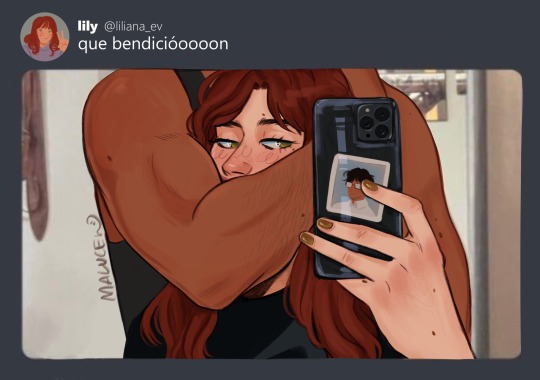
oh, the few lucky ones
2K notes
·
View notes
Text

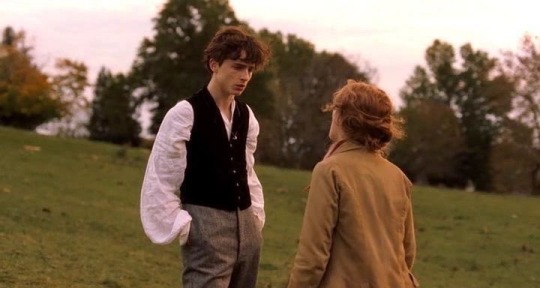
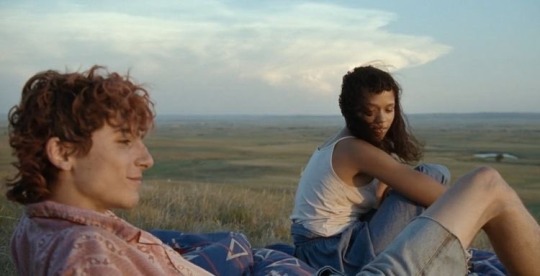
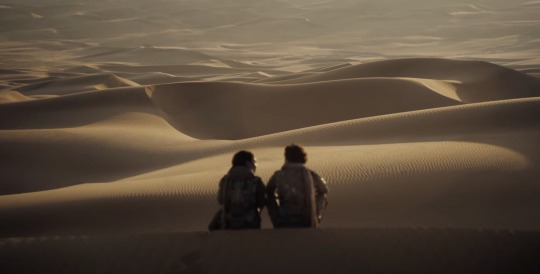
timothée + hills
238 notes
·
View notes
Text

transfemme and transmasc solidarity!
(prints available)
51K notes
·
View notes
Text
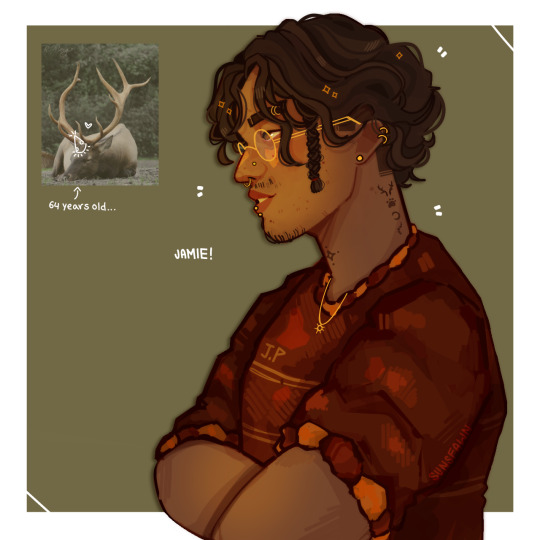
happy birthday to my fave dilf
1K notes
·
View notes
Text

happy birthday, tata james!
2K notes
·
View notes
Text
like i love james as the sun. but not bc he's sunshine. we revolve around the sun, we live and die by the sun, it brings harm and life. the sun is the primary god is many polytheistic faiths, in astrology it represents the ego, our ideal self, who we want to be or think we are.
people are drawn towards james the way we all flock outside on a warm sunny day. but you can't look directly at the sun, you can't touch the sun. james spends most of his life untouchable and unchallengeable. the people he loves, who got close enough to really see him, got burned.
8 notes
·
View notes
